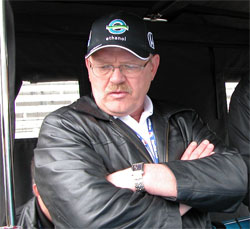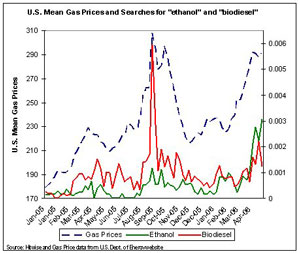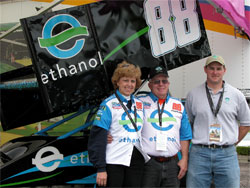 A Missouri-based company is getting ready to give away a new Ford F-150 flexible fuel truck. It’s MFA Oil Company and they’ll be announcing full details on Friday, May 26. Wish I could be there.
A Missouri-based company is getting ready to give away a new Ford F-150 flexible fuel truck. It’s MFA Oil Company and they’ll be announcing full details on Friday, May 26. Wish I could be there.
Basically, MFA Oil is partnering with Mid-Missouri Energy to help make corn-based E85 more affordable and accessible around the state. At the announcement event on Friday, MFA Oil President Jerry Taylor will explain “the numerous benefits of this project, including how it can potentially decrease Missourians dependence on foreign fuels, lower their prices at the pump, provide a boon to the corn farming industry and improve air quality.”Read More


 As we work our way closer to the Indianapolis 500 I’ve got an interview for you to listen to today with
As we work our way closer to the Indianapolis 500 I’ve got an interview for you to listen to today with 
 Times they are a changing. For example, look at this 1955 tv commercial for
Times they are a changing. For example, look at this 1955 tv commercial for  After attending the
After attending the  Small and limited resource farmers as well as any producers might be interested in USDA’s
Small and limited resource farmers as well as any producers might be interested in USDA’s  It’s the final week before the Indianapolis 500. Time to get revved up. I’ll be heading on over later this week. On Thursday the
It’s the final week before the Indianapolis 500. Time to get revved up. I’ll be heading on over later this week. On Thursday the  People who keep track of such things say that higher gas prices are causing a major increase in web searches for domestic fuel terms such as ethanol and biodiesel. According to
People who keep track of such things say that higher gas prices are causing a major increase in web searches for domestic fuel terms such as ethanol and biodiesel. According to  At Ethanol Day in Indianapolis recently,
At Ethanol Day in Indianapolis recently,